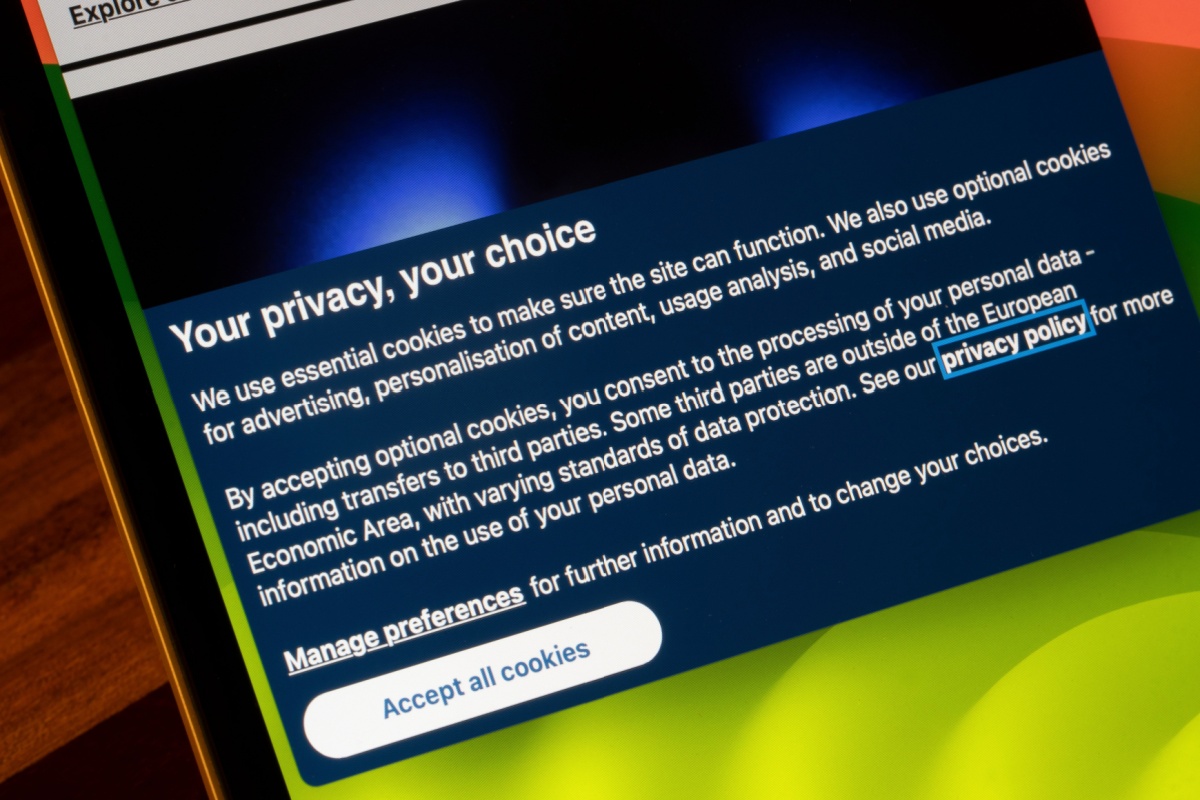
Learn How Privacy Laws are Changing PPC Advertising
Have you paid much attention to the cookies banner asking for your consent when entering a new website? It might ask you to accept or reject the use of cookies directly or sometimes, it is more like a notice that tells you that by visiting their site you agree to have cookies follow you. This is due to PPC Advertising Laws around the world.
As tasty as real life cookies are, digital cookies are a bit different. They are pieces of code that stick to your online self and track you around. These cookies allow companies like Google or Facebook to know more about you and serve you a more personalized experience, usually in the form of tailored ads and smarter Pay-Per-Click (PPC) marketing campaigns.
However, as we spend more time online, privacy concerns are becoming more and more of a priority for people, including governments and even private companies in places like Canada and beyond.
If you run campaigns out of Toronto or anywhere else, you can’t afford to ignore how this impacts your PPC marketing strategy and day-to-day paid media management.
What’s Currently Happening with PPC Laws?

Cookies aren’t pure evil, but they’re not pure good either. They help advertisers reach the right audiences, powering more efficient digital marketing and PPC ads by connecting businesses with users already searching for what they offer.
The problem starts when tracking goes too far. Because cookies follow behavior across sites, they can be misused to grab sensitive information or feel uncomfortably intrusive.
That’s why governments stepped in. In the EU, the ePrivacy directive requires transparency and consent, and in Canada, laws like PIPEDA set strict guidelines on how data can be collected and used.
For any brand running PPC campaigns in Toronto or nationwide, this means you can’t just rely on old-school tracking tricks anymore. Ignore privacy rules and you don’t just risk fines, you risk losing trust, driving up acquisition costs, and undermining even the smartest marketing strategy.
Enter the Era of Privacy-First PPC

In order to deal with new online regulations, strategies like privacy-first PPC have arisen.
Privacy-first PPC is a paid advertising approach that prioritizes user privacy by focusing on transparency, obtaining user consent, and using first-party data. It shifts away from reliance on third-party cookies toward strategies that build trust with consumers, comply with regulations, and utilize AI-powered tools for more accurate measurement in a privacy-focused world.
For a business with a digital presence, this means rethinking how online ads are delivered to users. Instead of hoarding every possible data point, smart PPC management focuses on quality over quantity, using clean, consented data and clearly communicated value exchanges.
The goal is to show ads that respect privacy while still driving conversion and sales to your business.
Switch to Privacy-First Paid Advertising

Here are some practical ways to future-proof your PPC marketing strategy while staying on the right side of privacy laws:
- Google Analytics 4 (GA4): The platform is built for a privacy-first world, utilizing event-based tracking and AI-powered modeling. It fills measurement gaps without reliance on third-party cookies.
- Consent Management Platforms (CMPs): These tools are essential for managing user consent. They ensure that tracking tags are only allowed to collect data after explicit user permission, and they synchronize consent logs across multiple platforms.
- Attribution Modeling: Achieve a comprehensive understanding of your Return on Investment (ROI) by integrating techniques such as Media Mix Modeling (MMM), Multi-Touch Attribution (MTA), and experimentation.
Overcoming the Challenging Road Ahead

Going privacy-first sounds great, until you’re the one trying to hit targets with less data.
Smaller remarketing lists and patchier tracking mean your PPC marketing strategy has to work harder, not louder. This means that stronger creatives, broader prospecting, and smarter bidding become the core of effective online ads.
You also won’t see every conversion anymore, and that’s okay. Let GA4’s modeling, offline conversions, and geo tests carry part of the load. This is where solid paid campaigns and experienced PPC management agencies turn from “nice to have” into mission-critical support.
Another quick tip: collect only what you need, clearly explain the value of sharing data, and audit your setup regularly. That way, your ads stay compliant, your users feel respected, and your campaigns still deliver in a privacy-focused world.
Feeling Confused about Privacy-First PPC? We Can Help
Privacy-first doesn’t mean the end of performance. It just means that lazy shortcuts are gone. If you’re feeling overwhelmed by cookies, consent banners, GA4 setups, and attribution debates, you don’t have to go it alone. You can always partner up with a professional PPC management agency. to do the heavy lifting.
Here at MRKT360, a Toronto-based digital marketing agency, we do exactly that. Our team members are heavily skilled and are expert navigators when it comes to set up paid media campaigns that comply with privacy regulations.
Wait no more, book a consultation today, and let’s make your business ready for a privacy-first world.
About MRKT360
MRKT360 is a results-driven digital marketing and solutions agency offering end-to-end services in performance marketing, AI strategy, SEO, paid media, and IT optimization.
With clients around the world, MRKT360 specializes in future-proofing brands through innovative solutions that align marketing and infrastructure.
If you want your next web project to be built on intention, clarity, and real user behavior, not fleeting design trends, MRKT360 is ready to help you build it.
Get a free PDF about Learn How Privacy Laws are Changing PPC Advertising
